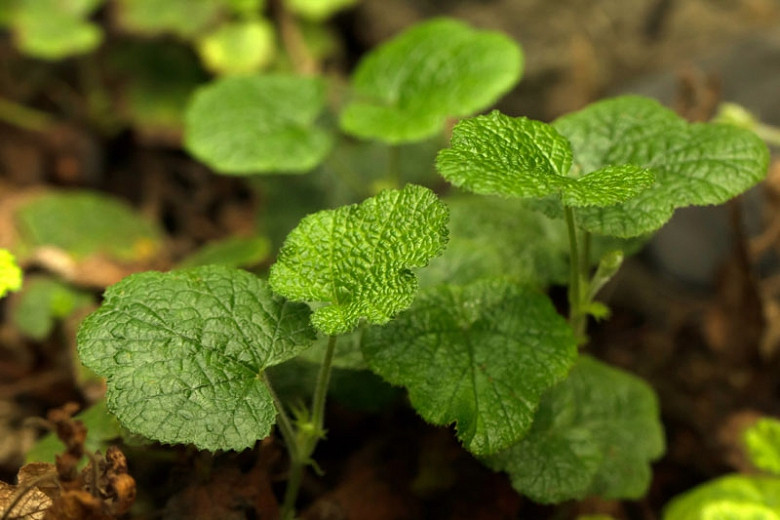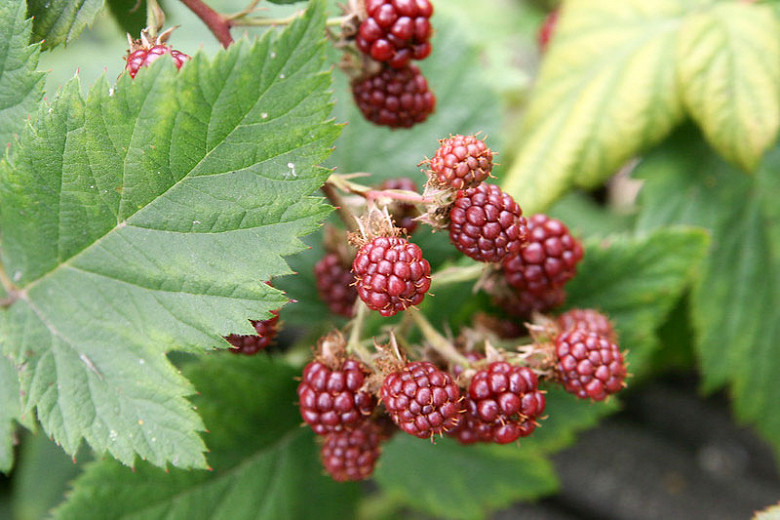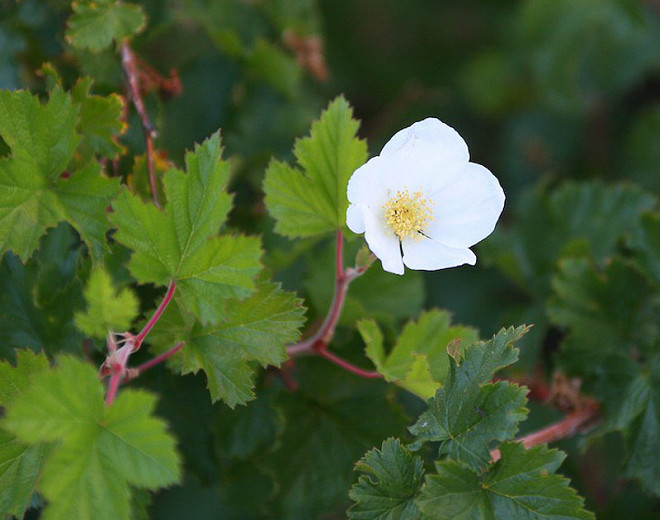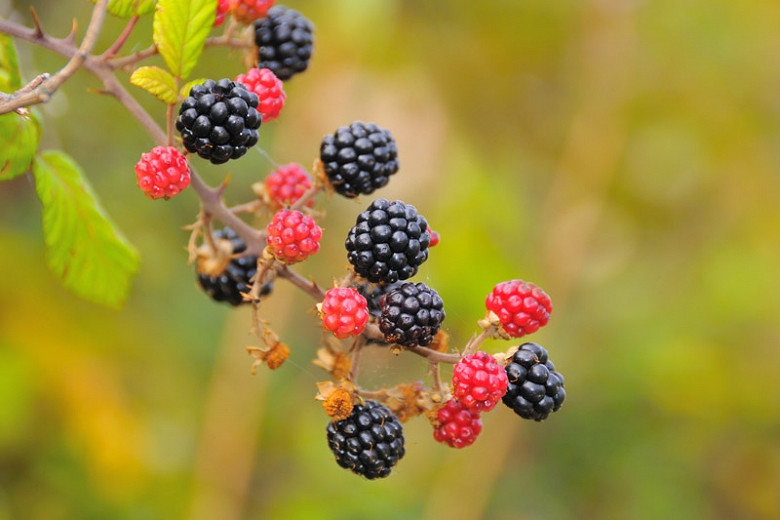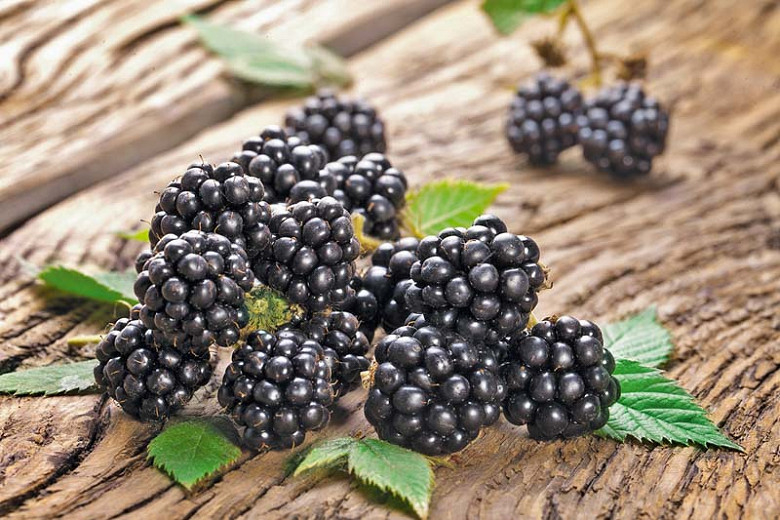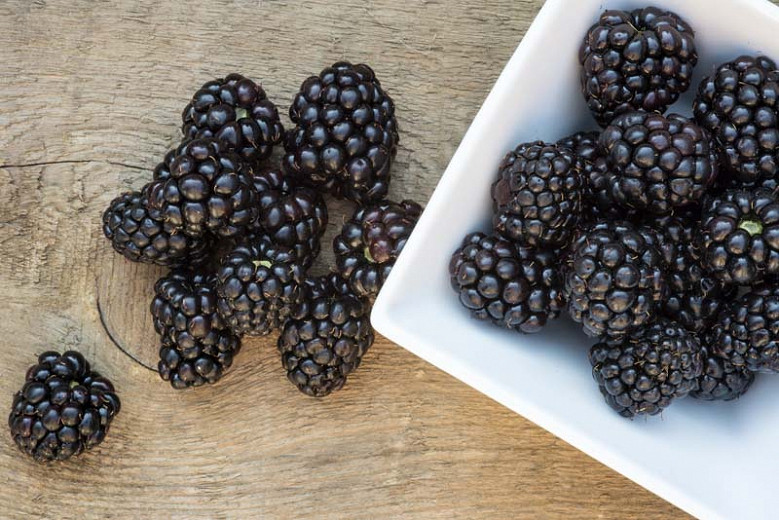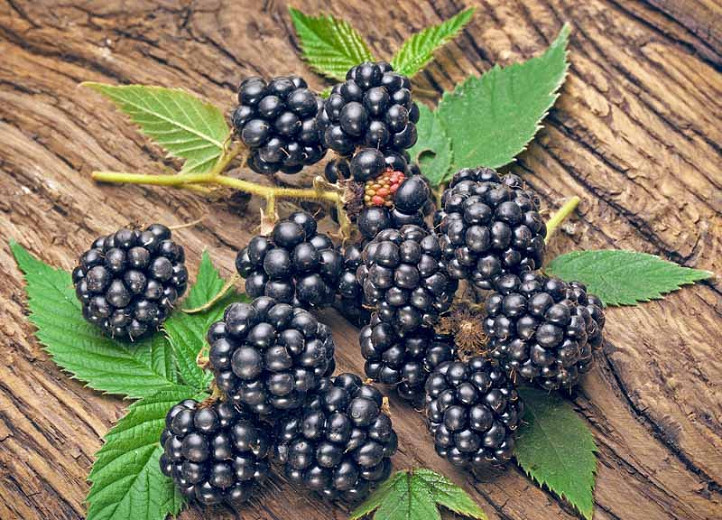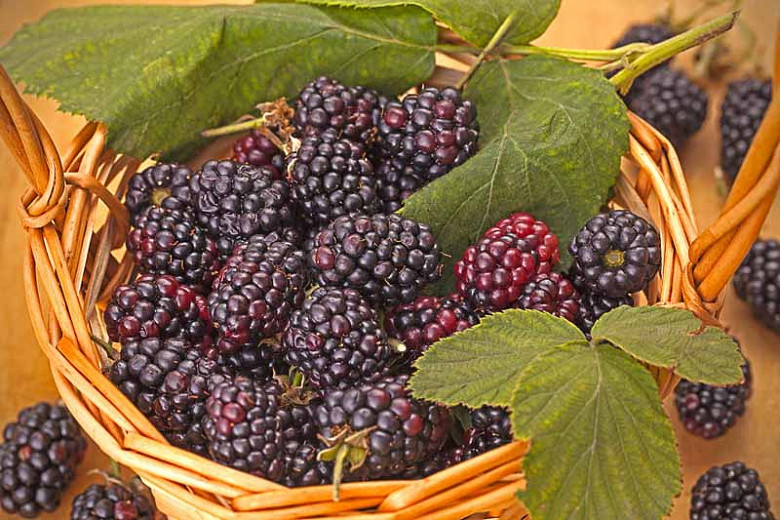Rubus calycinoides (Creeping Raspberry)
Rubus calycinoides (Creeping Raspberry) is an evergreen groundcover forming a dense carpet adorned with long spreading branches clothed in lustrous, emerald green, thickly textured leaves. Rounded, they have 3-5 broad, ruffled-edged lobes and display felted, whitish undersides. They may turn raspberry-red with the onset of cool fall nights. Small white flowers, reminiscent of strawberry blossoms, are produced sporadically in late spring to early summer and followed by bright golden to salmon fruits which are edible but not highly flavored. Spreading at a moderate rate, Creeping Raspberry makes a durable groundcover with beautiful foliage for sun or partial shade areas. It is an excellent pest-free lawn replacement and takes light foot traffic.
- Grows up to 9-12 in. tall (22-30 cm) and 5 ft. wide (150 cm). Provide ample room for it to fully develop.
- A full sun to part shade lover, this plant is best grown in loamy, well-drained soils. Regular watering helps establish this plant. Once established, it only needs occasional watering during dry weather. Drought tolerant and deer resistant.
- Long runners can be pruned back almost any time of the year.
- Native to Taiwan.
Requirements
| Hardiness | 6 – 9 |
|---|---|
| Climate Zones | 4, 5, 6, 14, 15, 16, 17 |
| Plant Type | Shrubs |
| Plant Family | Rubus – Brambles |
| Exposure | Full Sun, Partial Sun |
| Season of Interest | Spring (Early,Mid,Late)Summer (Early,Mid,Late)FallWinter |
| Height | 9" – 1' (22cm – 30cm) |
| Spread | 3' – 5' (90cm – 150cm) |
| Water Needs | Low, Average |
| Maintenance | Low |
| Soil Type | Clay, Loam, Sand |
| Soil pH | Acid, Alkaline, Neutral |
| Soil Drainage | Moist but Well-Drained, Well-Drained |
| Characteristics | Evergreen, Fruit & Berries |
| Tolerance | Deer, Drought |
| Garden Uses | Banks and Slopes, Ground Covers |
